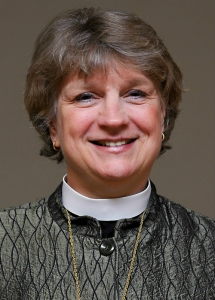 By Bishop Ann Svennungsen
By Bishop Ann Svennungsen
We know the instructions from the cockpit:
In the unlikely event of a loss of cabin pressure, oxygen masks will drop down from the panel above your head. … Secure your own mask before helping others.
For the past few weeks, congregations have been focused on securing their own oxygen masks: learning how to lead online worship, teach Bible studies via Zoom, create cell groups and networks so all are “accounted for,” submit PPP loan applications, and provide phone-based pastoral care. The list is long and the learning curve is steep.
“Now is a good time to look at the websites of our shared social service ministries.”
At the same time, we know that people all around us are living with significant needs – waiting for a neighbor to reach out – to provide the life-giving oxygen of love and care.
But, how do we show true neighbor-love when a novel virus with significant contagion and mortality rates spans the globe? How do we show compassion when “physical distancing” is the first step in a love that includes “first, do no harm”?
MOST CONGREGATIONS HAVE long been engaged in social service ministries prior to Covid-19. Now is a good time to look at the websites of these shared ministries. What are their current needs? I loved reading emails describing ways people have chosen to use their stimulus checks – supporting Lutheran Social Service, their congregation, the local food ministry. I imagine we’ve all been inspired to love in new and helpful ways.
“People all around us are living with significant needs, waiting for a neighbor to reach out.”
In his letter to the Pastor of Breslau Germany during the plague, Luther articulates a 16th century version of “secure your own mask before helping others.”
To flee from death and to save one’s life is a natural tendency, implanted by God and not forbidden unless it be against God and neighbor, as St. Paul says in Ephesians. …, ‘No one ever hates their own flesh, but nourishes and cherishes it.’ …
Therefore I shall ask God mercifully to protect us. Then I shall fumigate, help purify the air, administer medicine, and take it. I shall avoid places and persons where my presence is not needed in order not to become contaminated and thus perchance infect and pollute others, and so cause their death as a result of my negligence. ….
If my neighbor needs me, however, I shall … go. …
See, this is such a God-fearing faith because it is neither brash nor foolhardy and does not tempt God.
God, grant us wisdom and courage as we love our neighbor as we love ourselves.
